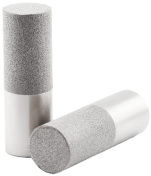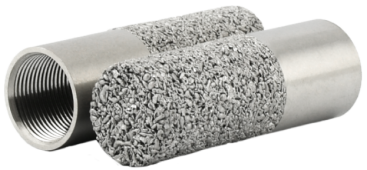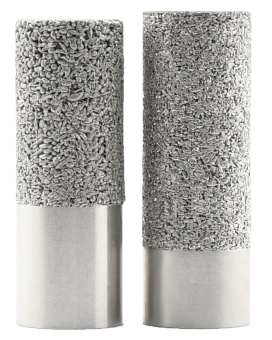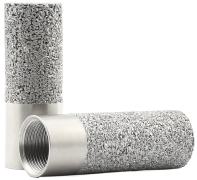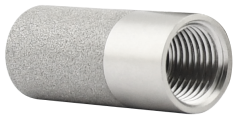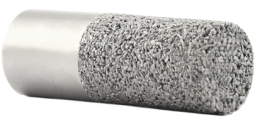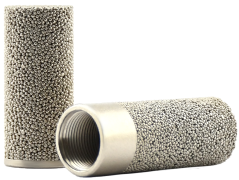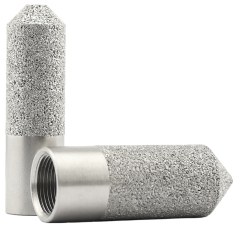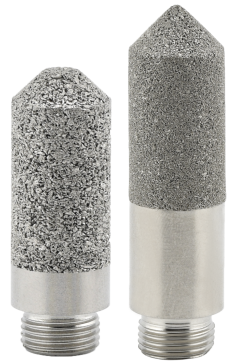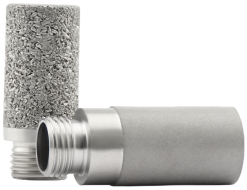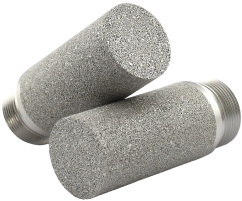Contact HENGKO to customize your OEM humidity sensor to your specific needs and requirements.

Temperature and Humidity Sensor Housing Enclosure
Constantly updated HENGKO sensor housing list. Choose the best specification that matches your humidity probe for reliable protection and accurate readings.
Humidity sensors require exposure to the environment in order to sense humidity levels, making them unique electronic components. However, this can potentially lead to accuracy degradation or damage if the sensing elements are not properly protected. To ensure the protection of your temperature and humidity sensors, we recommend using HENGKO's sintered porous metal stainless steel housing. Contact us today to learn more about our humidity sensor housings and how they can benefit your business.
The humidity sensor housing is made of a micron-porous metal filter to protect against water and dust according to IP67 specifications. It is designed to be replaceable to maintain high sensitivity during the service life of factory products. This protective cover has a filtration efficiency of up to 99.99% for particle sizes down to 0.1um. In addition to being water and dust-proof per IP67, this porous metal material has extremely high durability and weatherproofing, and high strength while maintaining sensor response time, making it most suitable for outdoor use and rugged environment applications.
Choose The Right Humidity Sensor Housing
HENGKO Supply Kinds of Porous SS Sensor Housing for Protect Temperature and Humidity Sensor
Humidity Probe Sensor Housing, How to Choose ?
Structure: Internal Thread
External Thread

1. The stainless steel thread part is seamlessly integrated with the breathable sensor housing part, which is firm and does not fall off, and the appearance is exquisite and beautiful.
Material: 316L Stainless Steel
Bronze

2. The stainless steel sensor housing is stronger and more durable, with good filter dustproof, corrosion-resistant, and waterproof capabilities, which can be used for measurement in various harsh industrial environments.
Appearance: Smooth structure
Cone

3. Complete specifications, high adaptability, can be customized to meet application requirements.
Porosity: Large
Small

4. Porous material, uniform and breathable, different pores with different filtration precision, to meet the filtration needs of different applications.
What Customers Said

“I was hesitant to switch to HENGKO's wholesale and OEM humidity sensor housing at first, but I am so glad I did. The quality of their products is unmatched, and their customer service is top-notch. They worked with me every step of the way to ensure that I was completely satisfied with my purchase.”

“I have been using HENGKO's wholesale and OEM humidity sensor housing for years now, and I couldn't be happier with their products. The quality is exceptional, and their prices are unbeatable. I highly recommend HENGKO to anyone looking for high-quality humidity sensor housing.”

“I recently started using HENGKO's wholesale and OEM humidity sensor housing, and I am blown away by the quality of their products. Their housing is durable and reliable, and their customer service is fantastic. I would definitely recommend HENGKO to anyone looking for high-quality humidity sensor housing.”
FAQ about Humidity Sensor Housing
A humidity sensor housing is a protective enclosure that covers a humidity sensor, preventing damage and accuracy degradation caused by exposure to the environment. It is necessary because humidity sensors are sensitive electronic components that require protection to maintain accuracy.
A humidity sensor housing works by enclosing a humidity sensor in a protective casing, shielding it from the environment. The housing is designed to be replaceable, ensuring high sensitivity during the service life of factory products.
Using a humidity sensor housing provides several benefits, including protection against water and dust, high durability, weatherproofing, and high strength while maintaining sensor response time. These benefits make it most suitable for outdoor use and rugged environment applications.
The humidity sensor housing has a filtration efficiency of up to 99.99% for particle sizes down to 0.1um. This ensures that the sensor is protected from airborne contaminants that could affect its accuracy.
The humidity sensor housing is designed to meet IP67 specifications, which means it is water and dust-proof. This ensures that the sensor remains accurate and reliable even in harsh environments.
The durability of the humidity sensor housing depends on the environment it is used in and how frequently it is replaced. However, with its high durability and weatherproofing, it is designed to last for a long time.
Yes, the humidity sensor housing is designed to be replaceable, ensuring high sensitivity during the service life of factory products. This makes it easy to maintain the sensor's accuracy.
The humidity sensor housing is made of a micron-porous metal filter, which is a highly durable and weather-resistant material. This material provides high strength while maintaining sensor response time, making it ideal for outdoor use and rugged environment applications.
The humidity sensor housing is compatible with a wide range of humidity sensors, including capacitive, resistive, and thermal conductivity sensors.
The humidity sensor housing protects the humidity sensor from the environment, which can cause accuracy degradation. By shielding the sensor from moisture and dust, the housing helps to maintain the sensor's accuracy.
Yes, the sintered metal humidity sensor housing can be cleaned. However, it is important to follow the manufacturer's guidelines to prevent damage to the housing or the sensor.
Yes, the sintered stainless steel humidity sensor housing can be customized to meet specific requirements. Contact the manufacturer for more information on customizing the housing. you can check the list sensor housing above. or contact us for more details by email ka@hengko.com
The humidity sensor housing should be replaced if it becomes damaged or if the sensor accuracy begins to degrade. Contact the manufacturer for more information on when to replace the housing.
What We Can Offer
- Specialized and experienced sales force
- Our products are sold to more than 20 countries around the world
- Comprehensive product portfolio
- Professional designers evaluate and design the best solution to meet your needs
- Wide range of technical documents - product drawings, data sheets, sample
- Assist in matching humidity sensor enclosures into your product
Proven best practices to ensure that your requrement
- Reliable and flexible production
- Sustainable product innovation roadmap to meet your future needs
